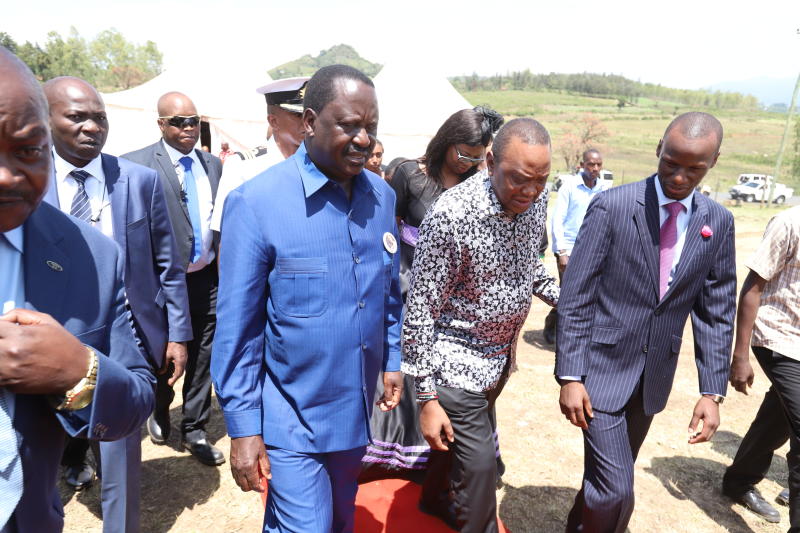
A year ago tomorrow, President Uhuru Kenyatta and former Prime Minister Raila Odinga surprised foe and friend when they walked down the steps of Harambee House and stretched out their hands for the now famous handshake.
For more than five years, the two were sworn political enemies. First, Mr Odinga believed that President Kenyatta’s election in 2013 was undeserved. He had then petitioned the Supreme Court. That win was upheld under controversial circumstances- Mr Odinga’s evidence was disallowed, declared time-barred.Then came the August 2017 election and President Kenyatta again trounced Mr Odinga. But this time, the Supreme Court upheld Mr Odinga’s petition.